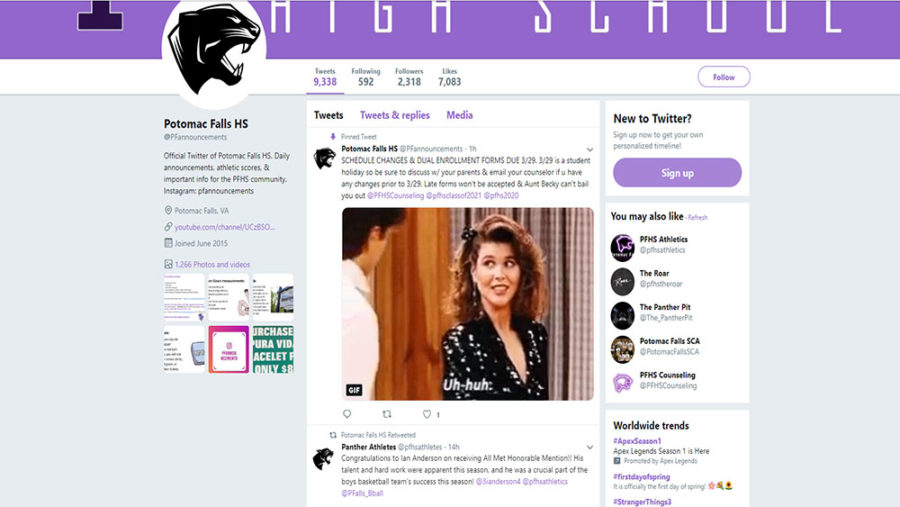Why We Don’t Know What We Don’t Know
We’re bombarded with information. So why don’t students know what’s happening?
It’s a late Friday morning. Hundreds of PFHS seniors funnel into the auditorium for the designated advisory block. After a flashy announcements video, a teacher rattles off the upcoming schedule for the week with dozens of events and a flurry of dates and times. One of the activities announced is a show from SOFA, the school improv troupe. In the crowd, there’s a single voice: “That’s the wrong date. The show’s a week later.” The response: “I was not told that.”
In a school with more than 1600 students, information is often slow to spread. But it’s not from a lack of trying: there’s a Twitter and Instagram account for announcements, and many school clubs have social media pages of their own, as do all of the current grade levels. There’s an abundance of resources scattered across the school website as well, including a calendar of events, the @pfannouncements Twitter feed, and webpages for every teacher.
Posters advertising club meetings, class help sessions, and other extracurriculars line the hallways. So then why, you might ask, are students still baffled about our school’s schedule? Is it a sign of a generation with shortened attention spans, a generation that’s grown up with instant gratification, 140 character blurbs and six-second video clips? Maybe. There is a different answer, though, that points to another problem entirely – information overload.
The aforementioned school Twitter does post important announcements, like changed bell schedules – but they’re buried under at least three new posts just hours later. Clubs’ and classes’ social media are often inactive or have a small number of followers, and given the continued de-chronologizing of platforms like Instagram and Twitter, their content gets buried even more easily. The school’s website is confusing to navigate (a lot of crucial student resources are on a tab vaguely marked “Students”) and flooded with an abundance of links, some of which can’t even be accessed at all on phones. The school calendar has more than a dozen events on most days, and there’s no way to separate categories or subjects. These events can be sometimes unclear, too, and clicking “more details” doesn’t give an additional description, or link to a page/social media account with additional info. And sometimes – as with the SOFA show – event details aren’t up to date and accurate. Ultimately, at a certain point, all of the posters and events start to blend together – and students start to tune them out.
Having too much to tell is an inevitable problem for such a large school. But what’s the solution? One of the best ways to counter a mountain of material is to sort it, which is a daunting task and far easier said than done. An overhaul of the school’s site would certainly help, but a lot of the framework is controlled by LCPS and not changeable. Twitter and Instagram are similarly locked down.
While it’s not a total fix, we can still leverage these platforms more effectively. Both Twitter and Instagram allow for “pinned” or “highlighted” posts, which could be used for priority info like schedule changes, for example. The main calendar could have events split by department. These are admittedly little tweaks, but they’re steps in the right direction. Information overload can and should be countered with careful categorization, and diverting our current stream of data would prevent a future flood.


